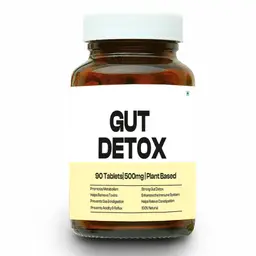Tablets for Good Gut Health: How to Choose and Use Them Wisely
Introduction
Gut health has become a popular topic in wellness circles for good reason. Your gut influences digestion, immunity, mood, and overall well-being. When your gut is out of balance, you may experience bloating, irregular bowel movements, fatigue, or even mood swings.
Alongside a healthy diet and lifestyle, many people turn to tablets for gut health such as probiotics, digestive enzymes, and fiber supplements to restore balance and promote digestive wellness. This guide will explore different types of gut health tablets, how they work, benefits, and tips for choosing the best ones for your needs.
1. Understanding Gut Health and Its Importance
Your gut is home to trillions of microbes—bacteria, fungi, and other organisms—that form the gut microbiome. A healthy microbiome helps digest food, produce vitamins, protect against harmful bacteria, and regulate inflammation.
Signs of Poor Gut Health:
- Frequent constipation or diarrhea
- Excessive gas or bloating
- Food intolerances or allergies
- Fatigue and brain fog
- Skin issues like acne or eczema
- Mood changes, anxiety, or depression
Maintaining good gut health is essential for overall vitality.
2. Types of Tablets for Gut Health
Several categories of tablets are designed to support gut function:
A. Probiotic Tablets
Probiotics are “good bacteria” that help restore microbial balance.
Benefits:
- Replenish beneficial bacteria
- Improve digestion and nutrient absorption
- Support immune function
- Reduce bloating and gas
- May improve mood and cognitive function via the gut-brain axis
Probiotic tablets contain strains like Lactobacillus, Bifidobacterium, and Saccharomyces boulardii. Look for products with multiple strains and at least 5-10 billion CFUs (colony-forming units).
B. Digestive Enzyme Tablets
These tablets provide enzymes that help break down food.
Common Enzymes:
- Amylase (breaks down carbohydrates)
- Protease (breaks down proteins)
- Lipase (breaks down fats)
- Lactase (helps digest lactose)
- Cellulase (breaks down fiber)
They can aid those with enzyme deficiencies or digestive discomfort after meals.
C. Fiber Supplements in Tablet Form
Fiber is critical for gut motility and feeding beneficial bacteria.
Types of Fiber:
- Soluble fiber (forms gel-like substance; slows digestion)
- Insoluble fiber (adds bulk and promotes bowel movements)
Fiber tablets can support regularity and improve bowel health but should be taken with plenty of water.
D. Herbal and Botanical Gut Health Tablets
Some herbal supplements promote gut health naturally.
Examples include:
- Peppermint oil (relieves bloating and cramps)
- Ginger (aids digestion and reduces nausea)
- Slippery elm (soothes the gut lining)
- Turmeric (anti-inflammatory properties)
3. How to Choose the Right Gut Health Tablet
With many options available, selecting the right tablet requires careful consideration.
Consider These Factors:
- Your Specific Gut Issues: Is it bloating, constipation, indigestion, or general maintenance?
- Ingredients and Strains: For probiotics, multiple strains usually offer broader benefits.
- CFU Count: Higher CFUs don’t always mean better, but a minimum effective dose is key.
- Purity and Additives: Avoid tablets with artificial fillers or allergens.
- Delivery Method: Some probiotics have coatings to survive stomach acid.
- Certification and Quality: Choose brands with third-party testing and good manufacturing practices.
- Consult a Healthcare Provider: Especially if you have a medical condition or take medications.
4. Benefits of Taking Gut Health Tablets
A. Improved Digestion
Enzymes and probiotics help break down foods and reduce symptoms like indigestion and bloating.
B. Enhanced Immune System
A balanced gut microbiome supports immunity by fighting harmful bacteria and producing immune-regulating compounds.
C. Better Nutrient Absorption
A healthy gut allows your body to absorb vitamins and minerals more efficiently.
D. Mental Well-being
Emerging science highlights the gut-brain connection; healthy guts may help reduce anxiety and improve mood.
5. How to Take Gut Health Tablets Safely
Tips for Optimal Use:
- Follow dosage instructions carefully
- Take with or without food as recommended
- Start with a lower dose to assess tolerance
- Drink plenty of water with fiber supplements
- Store probiotics in cool, dry places or refrigerate if needed
- Monitor your body’s response and adjust if necessary
- Avoid using as a substitute for a healthy diet
6. Lifestyle Tips to Complement Gut Health Tablets
Supplements work best alongside good habits.
Tips Include:
- Eat a diet rich in fiber (fruits, vegetables, whole grains)
- Limit processed and sugary foods
- Stay hydrated
- Exercise regularly
- Manage stress through mindfulness or relaxation techniques
- Avoid unnecessary antibiotics or medications that disrupt gut flora
7. Who Should Consider Gut Health Tablets?
- People with IBS (Irritable Bowel Syndrome) or digestive discomfort
- Those taking antibiotics (to restore gut flora)
- Individuals with lactose intolerance or enzyme deficiencies
- People seeking to boost immunity
- Those experiencing occasional constipation or irregularity
8. When to See a Doctor
If you experience severe abdominal pain, persistent diarrhea or constipation, blood in stools, or unintended weight loss, see a healthcare professional promptly.
Conclusion
Gut health tablets can be valuable tools in supporting digestion, immunity, and overall wellness. However, they are most effective when paired with a healthy lifestyle. Choose your supplements wisely, understand your body’s needs, and consult professionals when necessary.
Taking care of your gut means taking care of your whole self—starting from the inside out.
